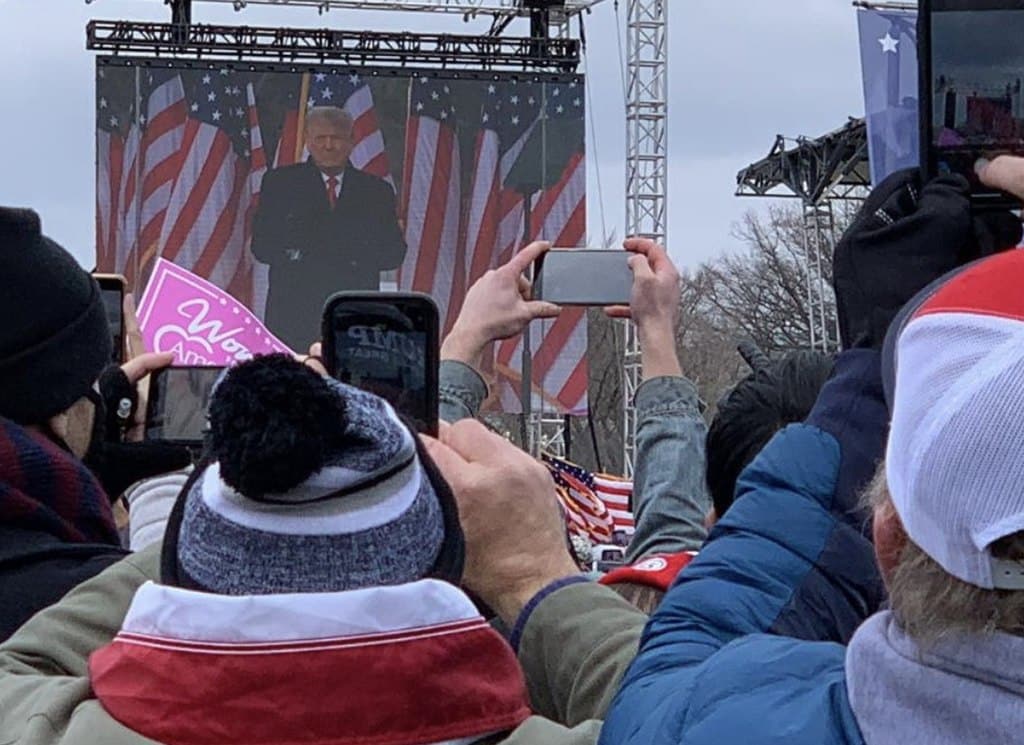The seven justices of the Colorado state Supreme Court—all Democratic appointees—heard arguments Wednesday regarding former President Trump’s eligibility to run for reelection based on the 14th Amendment.
A provision in the 14th Amendment says thatany American official who has taken an oath to uphold the U.S. Constitution is disqualified from holding office if they engaged in “insurrection or rebellion” or they’ve “given aid or comfort” to anyone else who has. The Amendment was established following the Civil War.
During Wednesday’s two-hour hearing in Denver, the justices posed questions central to the case, including the definition of insurrection, whether the deadly January 6, 2021 riot on the U.S. Capitol was in fact an insurrection, and whether the 14th Amendment’s provision applies to a U.S. President.
Colorado is one of six states where legal action has been raised regarding Trump and the 14th Amendment.
Last month, the Minnesota state Supreme Court dismissed the insurrection clause as preventing Trump from running for office again. About a week later, a Court of Claims judge in Michigan similarly rejected the insurrection argument in that state.
The question of whether the former President is Constitutionally eligible to potentially hold office again may ultimately be decided by the U.S. Supreme Court.
The issue of the 14th amendment surrounding Trump’s elegibility for office entered the national debate in earnest in August after two renowned legal scholars on opposite sides of the political spectrum raised the Constitutional argument: liberal Harvard Law professor emeritus Laurence Tribe and conservative retired federal judge Michael Luttig.
Luttig, who lives in Colorado, has noted that the 14th Amendment’s section 3 “functions as a sort of constitutional immune system” meant to “keep those who have fundamentally betrayed the constitutional order from keeping or resuming power.”
Trump has said numerous times that if he wins reelection, he would pardon those convicted of crimes linked to the deadly January 6, 2021 insurrection on the U.S. Capitol while attempting to overturn President Biden’s 2020 electoral college victory.
However, Tribe has recently said that it’s “an error” to focus on January 6, for which Trump has denied any responsibility, when questioning his eligibility to be President again.
“It’s what he ADMITS—ATTEMPTING TO STAY IN POWER AFTER OFFICIALLY LOSING THE ELECTION—that DEFINES ‘insurrection against the Constitution of the United States,'” Tribe explained on social media last month.
In another thread Tribe elaborated, writing that “what Trump tried to do by holding onto the presidency by any means possible, from fake electoral slates to pressuring Pence to reject lawfully certified slates to fomenting violence on Jan 6, amounted to a classic case of a failed coup against the Constitution itself and not just an attempt to overthrow an agency of the government…Trump sought to seize the government for himself rather than to dismantle it, a distinction without a difference when it comes to the text and purpose of the Disqualification Clause of the 14th Amendment…”
Following the Minnesota ruling, Trump wrote on his platform Truth Social, “Congratulations to all who fought this HOAX!”
It was unclear when Colorado’s Supreme Court would issue a ruling in that state’s 14th Amendment case.
Read more exclusive news from Political IQ.


